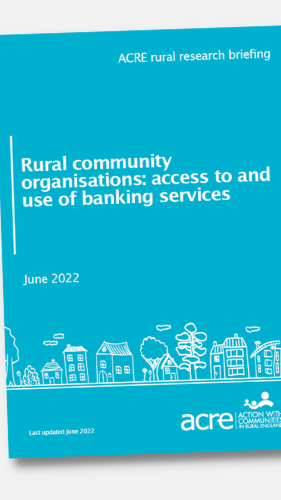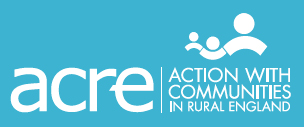Rural community organisations: access to and use of banking services
As the Covid pandemic has lifted, an increasing number of small rural charities have experienced difficulties with their banking arrangements.
This briefing provides our view on the significance of a survey of more than 1,200 charities conducted with NCVO about their recent banking experiences.
Of those responding to the report, 67% cited significant delays and difficulties with changing signatories and 41% considered they had become subject to unreasonable charges. 48% of those who responded were from rural areas and many of these linked their difficulties with the closure of bank branches or difficulties converting to online banking (17% of the population live in rural areas).
Small charities need access to bank accounts in order to be able to provide their services legally, in keeping with their own rules, and those set down by charity law. Their requirements differ from personal or business accounts due to their need for:
- dual authorisation for payments,
- continued use of cheques and cash over a longer transition period,
- relatively small turnover compared to recently introduced bank charges,
- volunteer operation of organisation accounts,
- charity constitution requirements for mandates and signatories
Small charities’ trustees have to rely on banks’ personnel and systems to understand their different requirements. Respondents voiced concerns that this expertise was no longer commonplace in many banks.
Multiple competitive factors in the banking industry are driving banking online and new operational requirements, designed to prevent fraud and implement Open Banking, are adding to the complexity of account operation. Taken together these make the operation of bank accounts for small charities increasingly difficult.
In rural areas these difficulties are multiplied by the disappearance of all but the largest bank branches. There is a real emerging danger that charity trustees may not be able to securely manage the charitable funds for which they are responsible.
Working with a wide range of other national charities through the Civil Society Group, ACRE is calling for urgent discussions between the banking industry, government departments, the various financial service regulators and the Charity Commission to find both short and long term solutions to a growing and urgent problem.



